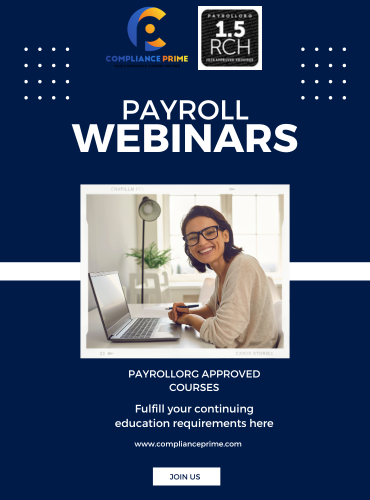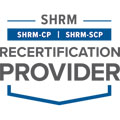

Guaranteed Pay Plans for Non-exempt Employees (Fluctuating Workweeks, Belo Plans, Etc.)
| Duration: 90 minutes | Speaker: Patrick A. Haggerty, EA |
Available On-Demand
PURCHASE OPTIONS
The amount paid to a nonexempt employee, even if salaried, is usually subject to adjustment with variations in hours worked. Where specific requirements are met, a nonexempt employee can be paid a fixed salary each workweek even though the hours vary from week to week.
Fixed salary plans include fluctuating workweek plans, Belo plans, and certain other guaranteed pay plans. However, to be compliant these are subject to strict requirements. To establish a guaranteed pay plan, the employer must make sure employees understand how they are being compensated and agree to the payment plan as required. Employers must avoid practices that are considered as circumventing the minimum wage and overtime requirements of the FLSA.
Description
The Fair Labor Standards Act governs the minimum wage and overtime pay requirements of the nation’s workers. Under the FLSA, employers are required to pay employees, if not otherwise exempt, at least the federal minimum wage for each hour worked. Compensation for any overtime hours worked must be at least one and one-half times the employee’s regular rate of pay.
Generally, payment of a fixed salary regardless of hours worked is generally limited to exempt employees. The amount paid to a non-exempt employee, even if salaried, is usually subject to adjustment with variations in hours worked. However, where the requirements are met, a non-exempt employee can be paid a fixed salary each workweek even though the hours vary from week to week.
In establishing a guaranteed pay plan, it is important for the employer to make sure that the employees understand how they are being compensated and, in some cases, documentation of that understanding is required for the plan to be compliant. In some cases, the understanding on the part of the employee is sufficient for the employer to use the plan, however for some types of plans, the employee must also agree to be paid according to the plan.
Why You Should Attend
It is critical when implementing a guaranteed pay plan that an employer understands the requirements and rules for compliance with the FLSA. These plans do not reduce the need for employers to keep accurate records of hours worked. There are strict requirements for compliance.
It is also important for employers to know what to avoid. The Department of Labor has identified a number of plans that employers have attempted to use that do not meet the statutory requirements of the FLSA. Such plans include such things as artificial wage rates, split day plans, pseudo bonuses, or a low “regular” rate supplemented by employer provided “facilities”. Use of such plans can be costly to employers in terms of payment of back wages and penalties.
This Webinar Will Help You
- Know when a guaranteed pay plan makes sense for the employer.
- Comply with the recordkeeping requirements for fixed salary plans.
- Understand how a fluctuating workweek plan could be beneficial.
- Know which deductions from salary are allowed, and which are prohibited.
- Identify plans that fail to meet FLSA standards and why they fail.
- Know how to handle FMLA leave under guaranteed pay plans.
- Investigate how paid time off is applied to the fixed salary.
- Know when bonuses are allowed under a fluctuating workweek plan.
- Apply the half time pay method for of computing overtime compensation.
- Techniques used to control overtime costs.
- Assure fixed salary employees are properly compensated for overtime.
- Understand how Belo Plans differ from other guaranteed pay plans.
- Know whether workweek hours must fluctuate on both sides of forty hours per workweek.
Areas Covered
- Various types of fixed pay plans and when they make sense for the employer
- Record keeping requirements for fixed salary plans.
- Which deductions from salary are allowed, which are prohibited
- Plans that fail to meet FLSA standards and why they fail
- How to handle FLMA leave under guaranteed pay plans
- Applying paid time off to the fixed salary
- Bonuses and fluctuating workweek plans
- Overtime pay computations – the “half-time” method
- Control of overtime costs - non-standard schedules and seasonal employment
- How to assure fixed salary employees are properly compensated for overtime
Who Should Attend
- Payroll Supervisors and Personnel
- Payroll Consultants
- Payroll Service Providers
- Public Accountants and Enrolled Agents
- Internal Auditors
- Tax Compliance Officers
- Officers and Managers with Payroll or Tax Compliance Oversight
- Company / Business Owners
- Managers/ Supervisors
- Public Agency Managers
- Audit and Compliance Personnel / Risk Managers
Patrick A. Haggerty, EA
Pat Haggerty is a tax practitioner, author, and educator. His work experience includes non-profit organization management, banking, manufacturing accounting, and tax practice. He began teaching accounting at the college level in 1988. He is licensed as an Enrolled Agent by the U. S. Treasury to represent taxpayers at all administrative levels of the IRS and is a Certified Management Accountant. He has written numerous articles and a monthly question and answer column for payroll publications. In addition, he regularly develops and presents webinars and presentations on a variety of topics including Payroll tax issues, FLSA compliance, information returns, and accounting.

The use of this seal confirms that this activity has met HR Certification Institute’s® (HRCI®) criteria for recertification credit pre-approval.
Credits: 1.5
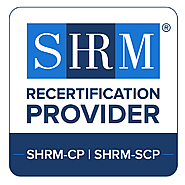
Compliance Prime is recognized by SHRM to offer Professional Development Credits (PDCs) for the SHRM-CPSM or SHRM-SCPSM. This program is valid for PDC(s) for the SHRM-CP or SHRM-SCP. For more information about certification or recertification, please visit www.shrmcertification.org
Credits: 1.5
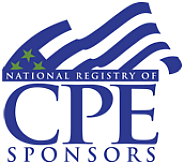
Compliance Prime is registered with the National Association of State Boards of Accountancy (NASBA) as a sponsor of continuing professional education on the National Registry of CPE Sponsors. State boards of accountancy have final authority on the acceptance of individual courses for CPE credit. Complaints regarding registered sponsors may be submitted to the National Registry of CPE Sponsors through its website: https://www.nasbaregistry.org.
Credits: 1.5
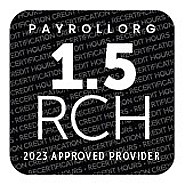
Credits: 1.5
Why You Should Subscribe?

Unlimited Live and On-Demand Courses
Watch all live or recorded webinars (up to 120 minutes long). Get instant access to a library of more than 500 high quality courses presented by best-in-class presenters.

CEUs: PAYROLLORG, CPE, SHRM and HRCI Credits
Fulfil your recertification requirements by earning CEUs from PAYROLLORG, CPE, SHRM and HRCI.

Free Access to Course Materials
Each program comes with Additional Course Materials, which you can download and read anytime.

Additional Discounts
Get flat 20% discount on Premium Product Category like, Long Hour Webinars.
Call Now At
888-527-3477
Email Us At
Similar Events

Feb 09th 2021 @ 01:00 PM ET
Unlocking the Mystery of the NEW Form W-4 (2021 Updates)

Oct 24th 2024 @ 01:00 PM ET
Onboarding 101: Fair Housing Basics for New Team Members
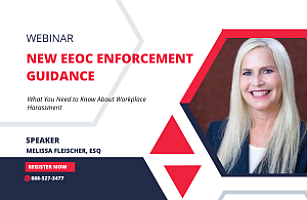
Nov 19th 2024 @ 01:00 PM ET
New EEOC Enforcement Guidance on Workplace Harassment

Feb 08th 2022 @ 01:00 PM ET


